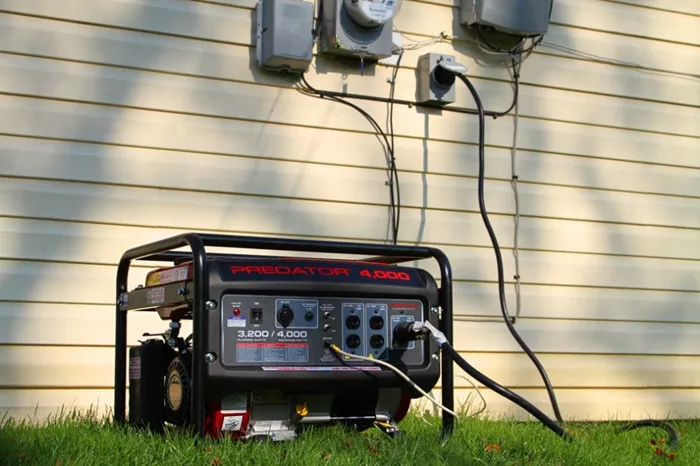Power outages can disrupt daily life, damage appliances, and even pose safety risks. A standby generator is a reliable solution to keep your home running during emergencies. Unlike portable generators, standby units automatically turn on when the power goes out, providing seamless backup electricity.
In this guide, we’ll explore the best standby generators for homes, key features to consider, and essential electrical knowledge to help you make an informed decision.
How Standby Generators Work
Standby generators are permanently installed outside your home and connected to your electrical system. They run on natural gas, propane, or diesel and activate within seconds of a power outage. Here’s how they work:
Automatic Transfer Switch (ATS) : Detects a power loss and signals the generator to start.
Engine Ignition : The generator’s engine powers up, producing electricity.
Power Distribution : Electricity flows through the ATS to your home’s circuits.
Automatic Shutoff : When utility power returns, the generator shuts down and resets.
This process ensures uninterrupted power without manual intervention.
Key Factors to Consider When Choosing a Standby Generator
Power Output (Wattage)
Generators are rated in watts (W) or kilowatts (kW). To determine the right size:
- Calculate your home’s essential load (fridge, lights, HVAC, sump pump, etc.).
- Add a 20-30% buffer for startup surges (motors need extra power at startup).
Fuel Type
Natural Gas : Convenient if you have a gas line; runs continuously.
Propane : Stored in tanks; good for areas without natural gas.
Diesel : More efficient but requires regular maintenance.
Noise Levels
Standby generators operate between 60-70 decibels (similar to a dishwasher). Look for models with sound-dampening enclosures.
Transfer Switch Type
Automatic Transfer Switch (ATS) : Best for seamless power transition.
Manual Transfer Switch : Requires user intervention; less expensive.
Brand Reputation & Warranty
Top brands like Generac, Kohler, and Cummins offer reliable models with 5-10 year warranties.
Best Standby Generators for Home in 2024
Generac 22kW Guardian Series
Power Output: 22,000 watts
Fuel Type: Natural Gas / Propane
Features: Wi-Fi monitoring, 5-year warranty, quiet operation.
Best For: Large homes with central air conditioning.
Kohler 20kW RESIDENTIAL
Power Output: 20,000 watts
Fuel Type: Natural Gas / Propane
Features: Advanced voltage regulation, durable engine.
Best For: Reliable whole-house backup power.
Cummins 18kW Home Standby Generator
Power Output: 18,000 watts
Fuel Type: Natural Gas / Propane
Features: Smart ATS, corrosion-resistant enclosure.
Best For: Long-term durability in harsh climates.
Briggs & Stratton 12kW Home Generator
Power Output: 12,000 watts
Fuel Type: Natural Gas / Propane
Features: Affordable, easy maintenance.
Best For: Medium-sized homes on a budget.
Installation & Maintenance Tips
Professional Installation is a Must
Standby generators require:
- Proper electrical wiring by a licensed electrician.
- A concrete pad for stability.
- Compliance with local building codes.
Routine Maintenance
Monthly Test Runs : Ensure the generator starts smoothly.
Oil & Filter Changes : Follow the manufacturer’s schedule.
Battery Check : Replace every 2-3 years.
Conclusion
A standby generator is a smart investment for homeowners who value uninterrupted power. By considering wattage, fuel type, noise levels, and brand reliability, you can choose the best model for your needs. For most homes, the Generac 22kW offers the best balance of power and features. If you need a budget-friendly option, the Briggs & Stratton 12kW is a solid choice. Before purchasing, consult a professional to ensure proper sizing and installation. With the right standby generator, you’ll never have to worry about blackouts again.
Did you find this guide helpful? Share your thoughts in the comments below!

